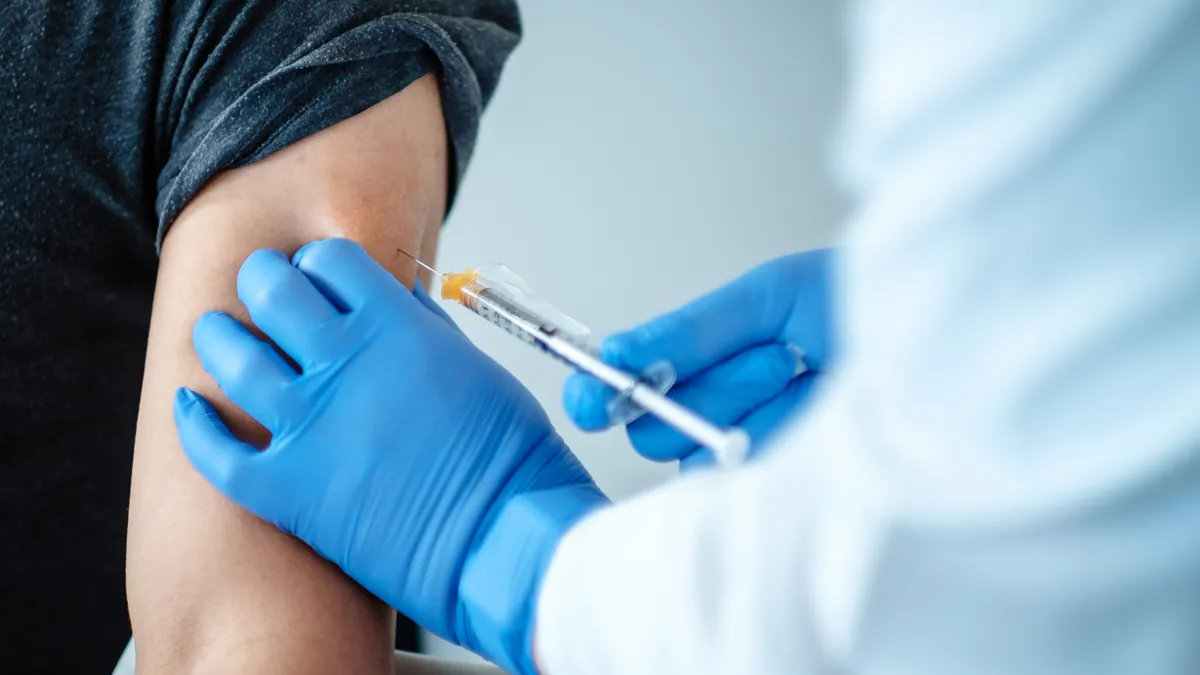Dive Brief:
-
A leading higher education health association recommended Thursday that colleges, where state law and resources allow, require the coronavirus vaccine this fall for students who participate in on-campus activities.
-
The American College Health Association said institutions should encourage students to get vaccinated as soon as possible. If students start but can't complete a two-dose vaccine on campus, then colleges should inform them of ways to get their second shot.
-
A rapidly growing contingent of colleges have already announced vaccine mandates, and more are expected to follow.
Dive Insight:
ACHA notes that vaccination requirements for students who enter college "are not new and are time-tested." One survey the group conducted found nearly 70% of some 200 institutions required students to be vaccinated against the measles in a recent academic year.
The organization acknowledged that the U.S. Food and Drug Administration has only approved the three coronavirus vaccines being administered in the U.S. under its Emergency Use Authorization. This allows the agency to more quickly roll out the vaccine during the pandemic. However, legal experts have said colleges are on solid legal footing to require vaccines approved under a EUA, even though they may be wary of doing so.
The association said there are "indications" the FDA will give full approval soon. In case that does not occur, it recommended that college leaders consult with their legal counsel.
Colleges should try to vaccinate students, faculty and staff before the end of the spring term, which would ease compliance with a mandate in the fall, ACHA said. This would also help mitigate the public health risk, as a "mass migration" of students leaving campus could spread the virus, it added.
The association said it recommends a vaccine requirement for frontline student health staff, but that faculty and nonhealth service staff should strongly be encouraged to get the shot.
ACHA pointed out that reopening campuses for face-to-face classes in the fall was associated with a spike in case counts in surrounding communities, which tracks with studies that came to the same conclusion.
The public perceives college students as a healthy cohort of 18 to 23 year olds, ACHA said. But that doesn't mean they're not at risk. The New York Times detailed recently how more young people in Michigan were coming down with more serious cases of the virus, driven by a new strain.
And many college students and employees are older, or could otherwise be at high risk for significant complications from COVID-19, ACHA said.
There will be exceptions. Colleges should offer medical exemptions for students, the association said. And some states, such as Utah, are instituting restrictions that could prevent colleges from requiring the shot. ACHA said it recognizes colleges will need to base their decisions on factors such as state limits as well as the availability of the vaccine and resources to administer it.














